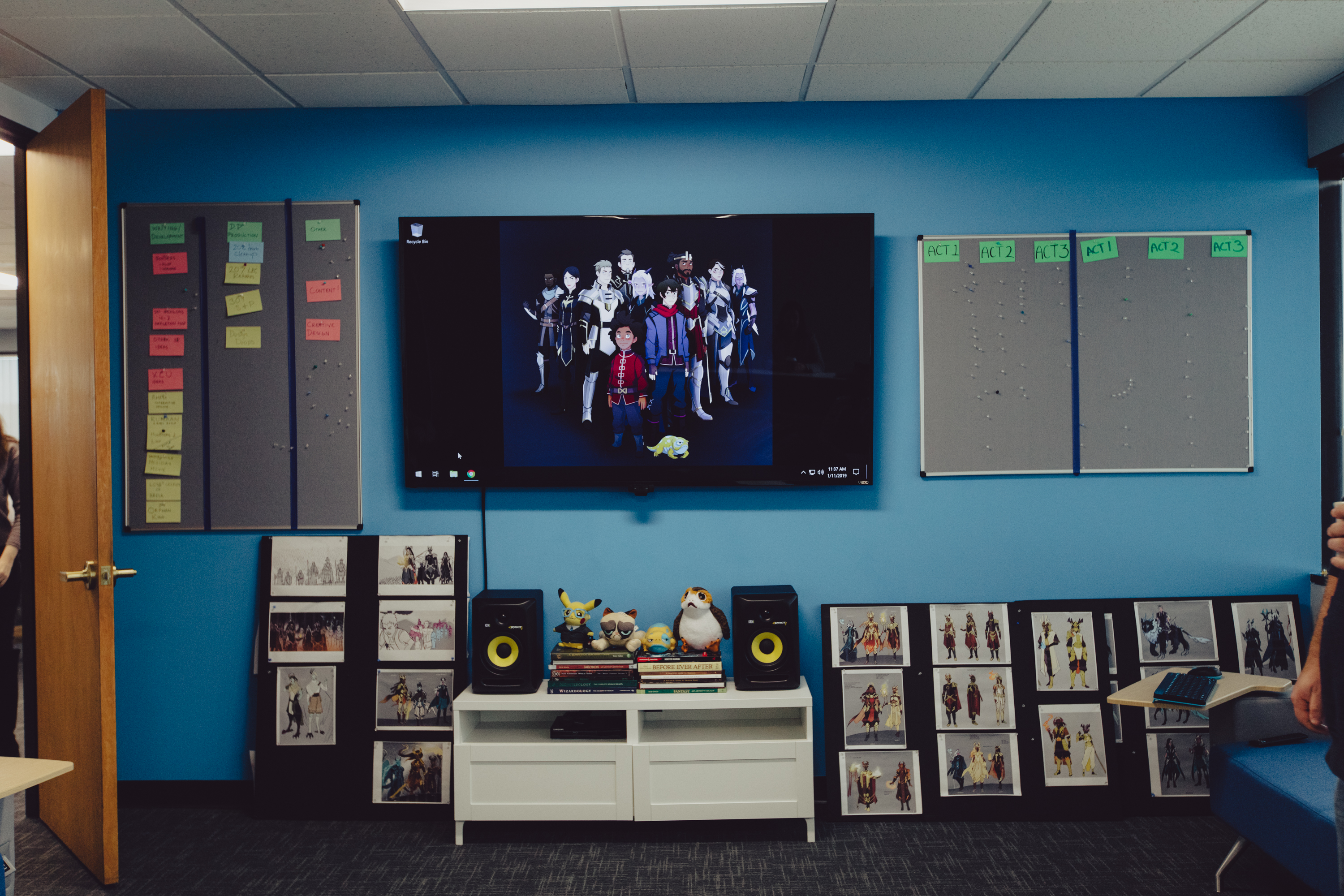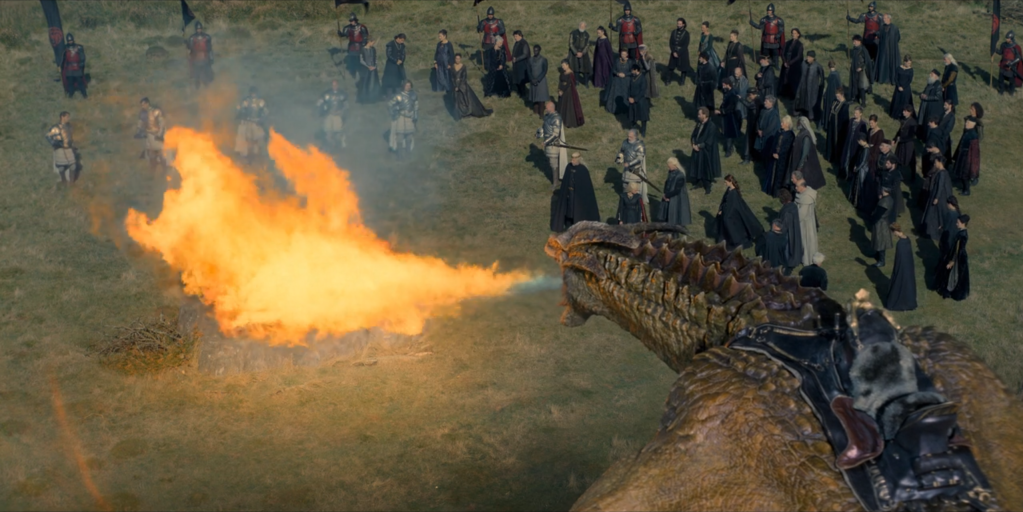The first season of Netflix’s popular animated fantasy show, The Dragon Prince, was met with positive critical reception and created a ravenous new fanbase. “This is our fourth [comic or anime] con in one season,” Justin Santistevan co-founder and president of Wonderstorm—the entertainment startup behind The Dragon Prince—told me during a studio visit. “We’re just enjoying showing up and talking to fans.”
The recently announced second season is set to hit Netflix on February 15, and fans are already speculating about how the season might pan out. Fans have also been speculating about The Dragon Prince game, which Wonderstorm has been developing alongside forthcoming seasons of the show. This game is shaping up to be different than existing television to video game titles, because Wonderstorm has been planning a game all along.
Videos by VICE
Thanks to co-founders Santistevan, Justin Richmond, and Aaron Ehasz, and their lead investor MWM, Wonderstorm is a collective of multidisciplinary artists and creators across the gaming and animation industries, rather than a purely television or film development company. And instead of bringing in “game people,” and “having the TV people tell the games people how to move the narrative to another platform,” Ehasz told me, “we hired an amazing team of game designers and game producers who got the show, and just empowered them to do their job.” Richmond worked as a game director on Uncharted 3 and Santistevan work as a producer for Riot Games. The rest of the game development team has experience from a range of prestigious companies, including Atari, Naughty Dog, and Supercell.


This innovative way of approaching television and game design is why I came to the studio to play an early build of the game. During my run, I chose to play as the elven assassin Rayla, in an environment that teases a vision of what the rift between Xadia and Katolis looks like. If you recall, the opening sequence of each episode of The Dragon Prince season one depicts a world map burning away at the dividing line between Xadia and Katolis—that’s the setting I played in. I also sat in on the game developers’ meeting, and snatched up some details about what to expect:
- The game will be based on the show, taking place in the lands the show has explored before, but it won’t be rehashing The Dragon Prince‘s narrative. Don’t expect the kind of game that retells the main plot. It should be considered a “world expansion,” according to Richmond.
- It will be combat-based and multiplayer, but not an MMO (a massively multiplayer online game like World of Warcraft or Fortnite)
- You can choose which character from The Dragon Prince that you wish to play as. There will be a range of characters to choose from—some of whom we haven’t met in the show yet, but we’ll see in season two.
- Each playable character has an array of move sets that reflect their abilities in The Dragon Prince. Viren, for example, will possess certain moves that are dark magic based, while Rayla will have certain agility based moves and Amaya will have blocking based moves. As a result, character selection requires a bit of strategy, because character abilities are complementary and you want to build a good team.
- Characters will all have an “ultimate”—an extremely powerful move that can only be used when it has been charged up.
- No release date or information about the game’s official platform has been announced yet.


Ehasz is aware of fans who have had bad experiences playing games that try to translate a show quite literally. His background as a co-executive producer, head writer, and director for Avatar: The Last Airbender has motivated him to make sure this doesn’t happen with The Dragon Prince.
“Seeing Avatar [The Last Airbender] connect with an audience who loved it, but letting them down when it was time for them to have toys or play games with subpar stuff—that wasn’t awesome,” Ehasz told me. “It was a really disappointing experience for me, and I became obsessed with the idea that if we’re going to do this again, we’ll do it with the right partners and the right team, where we’re building out a show but we’re also building out an experience—so that other parts of it are worth it to our audience. And, so that if we do capture their imagination we can keep building more.”
Sign up for our newsletter to get the best of VICE delivered to your inbox daily.
Follow Nicole Clark on Twitter.




